Reflecting on Greatness
Finding comfort that the eternal exists in the fleeting moments that gather together in this thing we call “life”.
My Reflections on the Passing of Rod Oram, UK-Born New Zealander, Climate Journalist, Speaker and Staunch Sustainability Advocate.

Fear not that I have gone. Find comfort in knowing that the eternal part of me always existed in the fleeting moments that gathered together in this thing you called my life. These moments, whilst ephemeral and ever-transient, Comprise the Great Oneness of which we are all part. Now that I am no longer breathing breath with you, Know that I am now a part of the very breath that moves through you. I look forward to welcoming you here after you’ve taken your last breath And when your fleeting moments are over for this lifetime. For whilst they will one day be over in this epoch where time and space convene, You are never over. Your Soul continues to evolve. You will return to Source, from where you came, into the ever-present, all-knowing Oneness of All That Is and All That Ever Will Be. I am you. You are me. There is no separation between this "extraordinary hui of humanity”* and Divine cosmic consciousness. The only separation that has ever existed is born of mere perception. And this you know: When perception is removed, all that remains is Truth. - An Ode to Those Who Remain Behind. Inspired by Rod Oram's recent passing. Sian Flynn-Coleman, March 2024.
*see footnote 2, below.
The Paradox of Death: Its permanent impermanence
It was on Saturday of this past Easter weekend in March 2024 that I learned about Rod Oram’s unexpected death earlier in the month.
At times like these, we are urged to become familiar with the present moment, be grateful for the breath that we can take right now, and contemplate the times we were able to share breath and oxygen with the people in our lives who made an impact on us while we had the opportunity to walk on the planet synchronously with them.
I don’t know what it is, but there is a kind of complacency—at least in my mind—that these great individuals who bestow their mana1 on all who come across them in their path will never meet their fate.
According to that line of thinking, they are immortal. While we acknowledge (with a healthy dose of realism) the finality and inevitability of their final breath, we somehow take for granted their ongoing existence.
We hold this same complacency for those we love as well—at least, I do—which I appreciate is naïve. And while this seems absurd, there is, I guess, some Truth to this naïveté, which I hope to elaborate on below.
I have never once considered Rod Oram no longer existing on this planet. I have never considered his demise from Grace. His final breath. His final heartbeat of this precious life he was leading.
And yet, he has indeed taken his last breath; his heart has beaten one final time.
The irony—and nod with fine and gentle humour (in Rod’s eloquent way) of his last hurrah being on his bike—is not lost on me (I am sure others feel the same way).
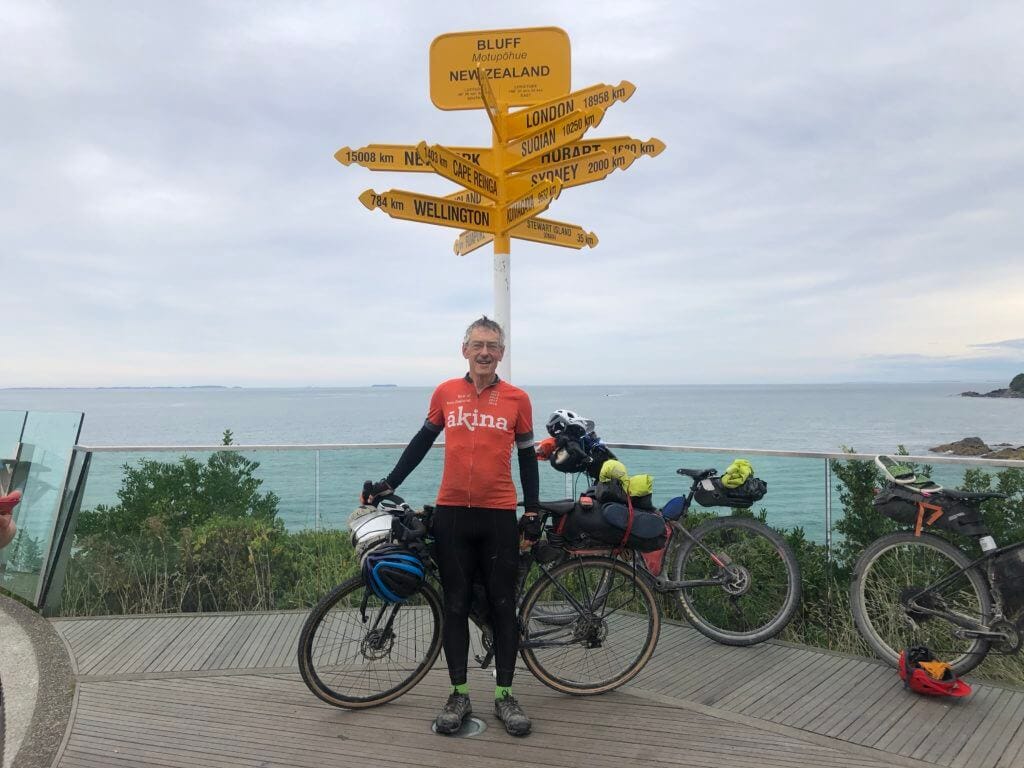
So, whilst I am met with an empty feeling in my heart as I contemplate the sudden ending of this great man’s life, I take comfort in my belief that he is now in the ethereal realms, likely reunited with his soul fragments, his Higher Self, and has returned to Source, Eternal Oneness.
His ability to see, know, understand, and compassionately empathise with the great human struggle down here on Gaia will be magnified a thousandfold.
So, his work—his legacy—will live on through all of us who were impacted by his presence during his lifetime.
The beauty in this—and I say this in full acknowledgement and respect for what Rod may’ve believed (as I am unsure of his thoughts on the metaphysical)—is that with Rod having returned to the Unified Field, his greatness—his mana—is accessible to us all.
I believe those who remain in the Earthly realm can access the mana (the essence of the spirit) of any human or being we have ever loved or revered who has passed on from this—or any other—lifetime.
This is why, no matter one’s faith or credence, we can pray and access the divine love and light of any Deity or Divine Spirit of our choosing (whether that be Jesus, Mother Mary, the Buddha, Muhammed, or Brahma)—even that of our own Grandparents, loved ones, friends, Ancestors, acquaintances, or anyone who influenced us during our lifetime.
I am honoured to say that I have shared many breaths with this man who propelled the sustainability and climate agenda in New Zealand with great tenacity and fervour. I share a couple of these anecdotes below.
The Rio+20 Global Summit & My Career in Sustainability (v.1) Launchpad
I remember first being introduced to Rod Oram when colleagues from The University of Auckland, Ross McDonald, Dan Callum, and I were in Rio de Janeiro during the United Nations (UN) Earth Summit in 2012.
The backstory is that Ross, Dan and I had submitted our entry into the UN Principles of Responsible Management Education (UNPRME) LEADERS+20 competition which encouraged global business school teams to present their ideas for integrating sustainability and accountability into management-related education. The urge of the global competition ahead of the 20th anniversary of the auspicious 1992 UN Global Summit was for entrants to consider the pressing need for more ecologically literate business school graduates in light of mounting environmental and climate pressures.
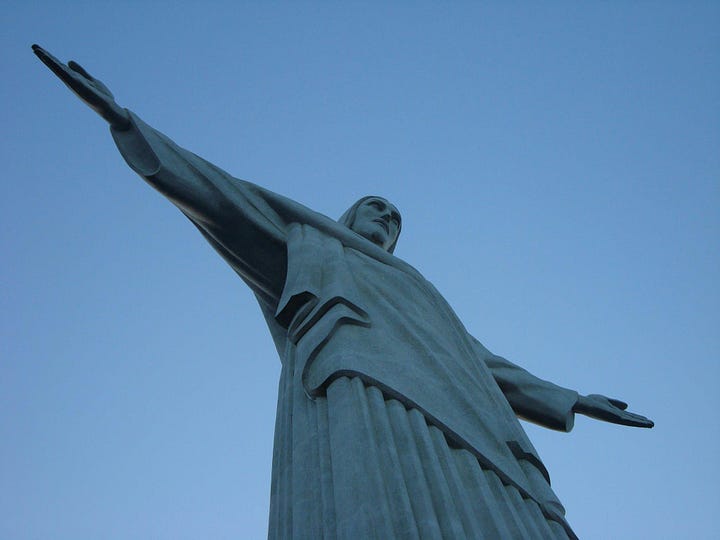
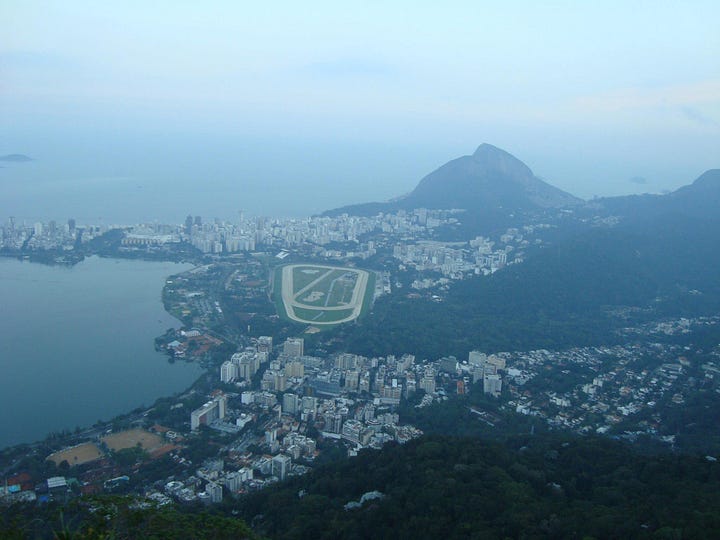
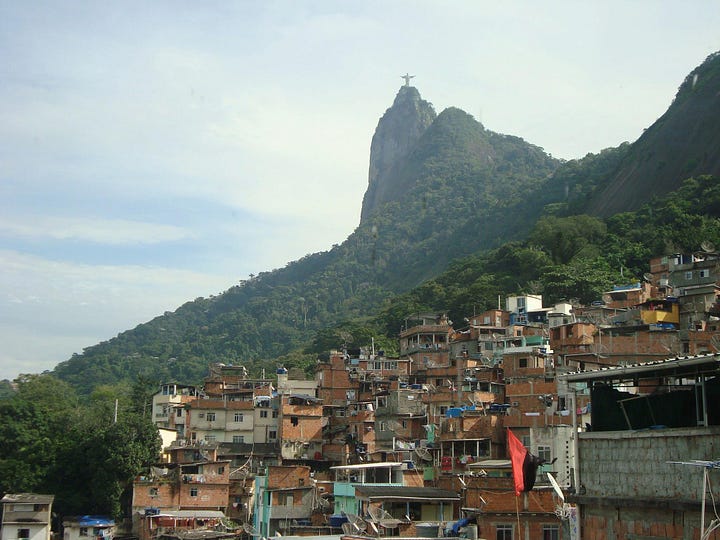
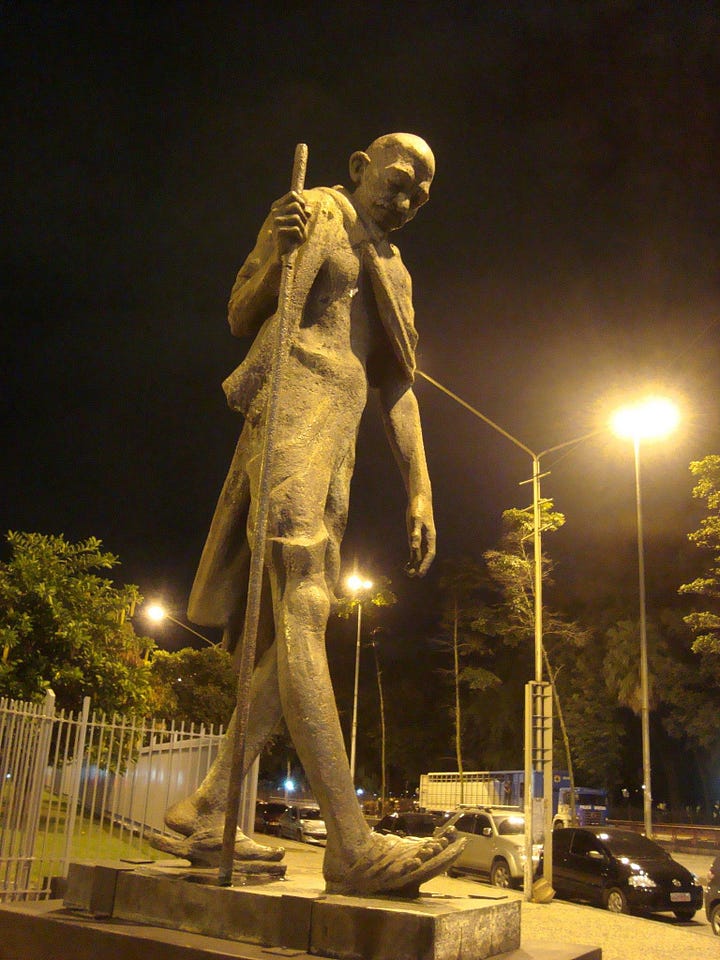
Under Ross’ guidance, and using insights from my recently completed master’s thesis on global sustainability education in the tertiary sector, the undergraduate business course we co-designed, which we called Managing Change for a Better World, was judged the winning entry by an international panel. The prize was a funded trip to Brazil for the winning team, to present the programme at the Rio+20 Corporate Sustainability Forum, as well as inform panel discussions at the 2012 PRME Global Forum.
Rod was attending the Conference in his capacity as a business and climate journalist for significant publications back in New Zealand, and given that our work was closely interlinked, Ross had arranged a time to connect with Rod, introduce Dan and me to him, so we could share insights from the sessions we’d attended.
We shared a meal with Rod, after having met with some of the Kiwi contingent on one of the days, and despite the obvious age gap between us (Dan and I were in our 20s at the time), our elders, Ross and Rod, considered us equals. Our viewpoints were held in equal regard, and we felt as if our contributions to the conversation mattered.
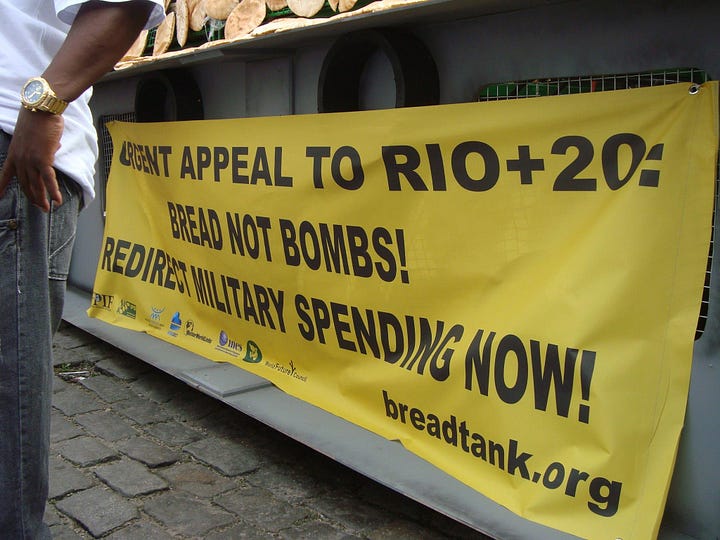
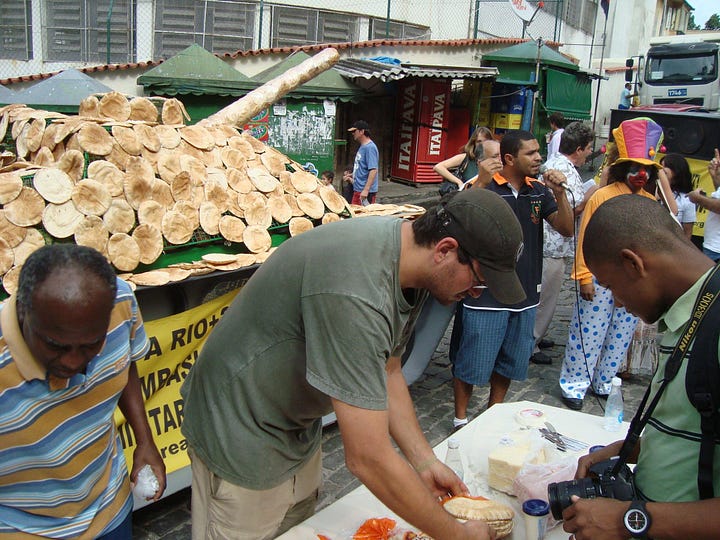
Rod’s ability to see the humanity in all who shared a common interest—be that in climate, sustainability solutions, or his great passion, cycling—no matter their political background, socioeconomic status, religion, or creed—made his messages of climate action so relatable.
It was from these global summits—these “extraordinary hui of humanity”2,3 as Rod had called them—such as Rio+20 and the many UN Climate Change Conferences (Conferences of the Parties of the UNFCCC, or COPs) that he frequented over the years, that he’d return to disseminate the key messages and his insights back home in New Zealand.
He reported that in Rio for example “few people and organisations capable of turning ideas into actions attended the summit” owing to a massive underrepresentation of business (and in particular New Zealand businesses), leaving governments the purported saviours of the environmental plight fought for by civil society.
As he concluded, New Zealand businesses and the government at the time were at risk of “missing [the] shift to sustainability” (ibid.) demonstrated by other countries at the summit that brought business, government and civil society together putting the UN Sustainable Development Goals front and centre of policy development.
As a prominent New Zealand business journalist, Rod’s audience included business leaders, NGOs and the sustainability folks on the ground doing the mahi4, together with whoever else was keen to listen to or read his words. It’s wonderful to see that his legacy is being honoured in the country since his passing.
The Principal, The Journalist and the Old Girl: Redefining Passion and Purpose
Fast-forward a few months or more following the UN Rio+20 Conference; still relatively green in my career as a sustainability “professional,” I remember a specific meeting I’d organised to introduce Rod to Liz Thomson—then Principal of Auckland Girls' Grammar School (AGGS), the secondary school I’d attended some 10 years prior—and Libby Giles, who was at the time Head of Philosophy, facilitating the global citizenship curriculum at AGGS at the time.
What brought me back to my alma mater, specifically, was that while in Rio, I’d learned about a Kiwi secondary school student who, at only 14 years old at the time, had received acclaim for a letter she’d penned to Mr Ban Ki-Moon (then UN Secretary-General) as part of an essay writing competition that more than 800 students globally had entered. Being the overall winner of the competition (!), she was invited to attend the UN Conference to present her essay in person.
As an AGGS Old Girl, I couldn’t be more proud to learn that this young woman, Nardos Tilahun, hailed from Auckland Girls’ Grammar! (#AGGSRepresent!)
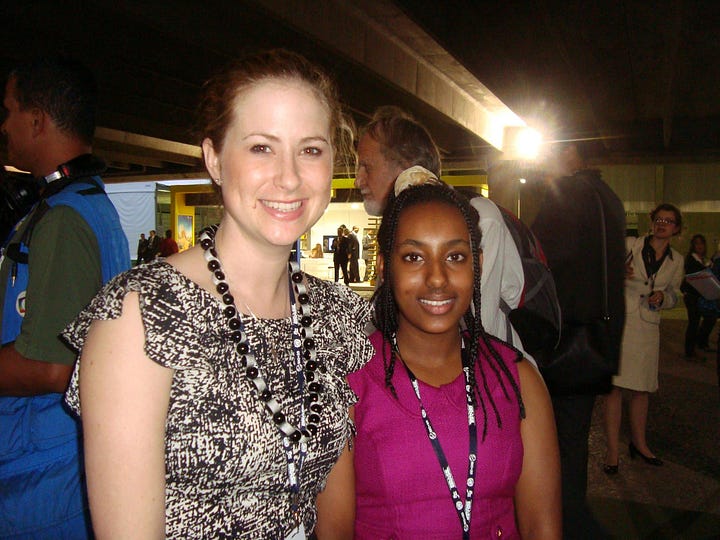
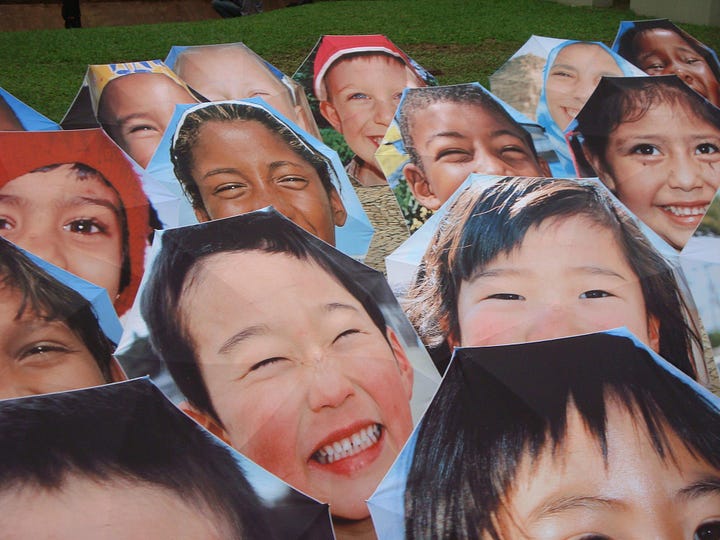
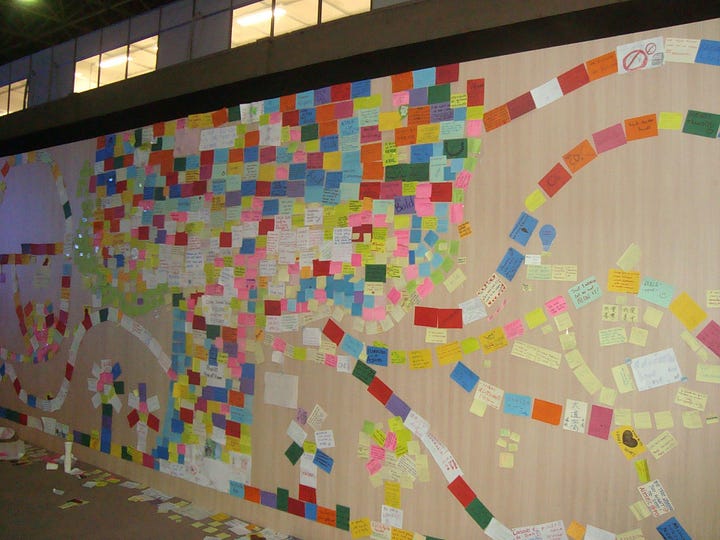
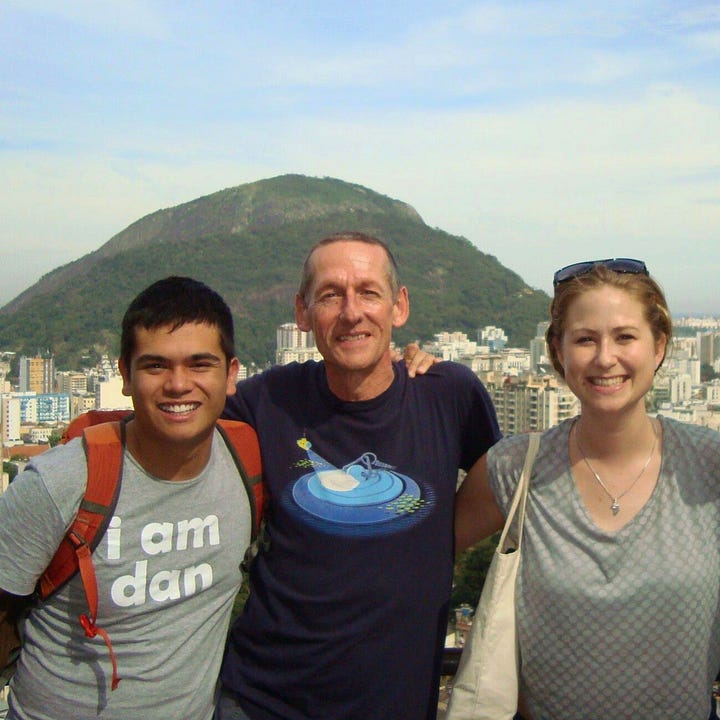
I was rapt to hear how central the global citizenship curriculum had become at the school since I had been a student there.
Naturally, on my return to New Zealand, I was keen to enquire with Liz—Ms. Thomson, to me (I couldn’t quite bring myself to call her by her first name)—about how AGGS had made sustainability education integral to its curricula for its students. I wanted to glean what could be learned for other schools—and organisations—to take heed of. And I knew just the person to bring into the fold after having met him in Rio some months prior.
So, it was this strange moment, sitting in my principal’s office as an Old Girl of the School after Ms Thomson, Libby, and I had exhausted all the pleasantries and small talk we could muster and were now patiently waiting for Rod to join this all-important “meeting of minds” I had arranged.
Finally, Rod arrived.
I felt my cheeks redden and prickle with heat. I remember navigating this strange sense of nervous anticipation, which melded into slight embarrassment: not only was Rod tardy for this meeting, but he arrived puffing and sweaty in his cycling garb, having just traversed the hills of midtown Auckland to meet with us.
“How uncouth,” some corporate tight-lips from neighbouring high-rises might’ve said. However, as I’ve read online, it wasn’t unusual for Rod to turn up to meetings this way. In his most authentic, “take it or leave it, I’ve got a job to do, let’s get on with it” kind of way. He was brave like this, challenging societal (or corporate BS) “norms” as he did. And I applaud him for that.
Side note 1: Anyone who knows me knows that I can barely talk when it comes to flagging someone else’s tardiness, and I’ll be the first to admit it. 😬
This is pure hypocrisy coming from me - someone who is inherently EXTREMELY time blind.5 (Since getting my ADHD diagnosis nearly 3 years ago I’ve come to learn that this is an “actual thing” - which I look forward to writing about in future publications - stay tuned!)
I am only mentioning it here to paint the picture of how committed Rod was to demonstrating his keen devotion to climate action: to walking (or in his case, cycling) the talk.
Yes, turning up to a formal meeting a bit late, but due to having used his very own physically exerted energy to get there, to discuss tangential topics of sustainability and global citizenship education and climate justice - who is anyone to judge?
Side note 2: Actually…having come across a few references to Rod turning up to meetings as he did, often “looking slightly dishevelled”, being someone who was known for thinking outside the box and was “never bound by orthodoxy”, (classic hallmarks of ADHD) makes me wonder if Rod may’ve been a cloaked, or undiagnosed, ADHDer? 🧐 Maybe not, but I think it’s something to ponder and do some research on one day, perhaps.
Suffice it to say that Rod’s insights, gleaned from having had his finger closely on the pulse of climate change discourse for many years, were woven perfectly into the meeting at my old principal's office. The meeting was a success: connections were made, insights gleaned, and further avenues to explore were uncovered.
I loved listening to Rod deliver his keynote addresses and contribute to panel discussions over the years at various conferences and events I attended while working in corporate sustainability in New Zealand.
His words urging action instead of complacency for individuals, businesses, and governments alike come with hard-hitting, well-researched truths delivered in an accessible way. In his last column for Newsroom, he wrote:
Quite simply, nature is now changing far faster than we humans are – and that’s on a human time scale, not a planetary one.
Across all five Earth systems, nature is moving far faster than we modelled or are responding to. Examples are forest fires, biodiversity loss, ice loss, and, above all, ocean heating…
We, along with the rest of humankind, must figure out how to achieve an utterly unprecedent[ed] speed of change, scale of change and complexity of change. Everything, everywhere, all at once – to borrow from the multiverse film that scooped last year’s Oscars.
The first step is to own up to the crises we’re creating; the second is to admit the failure of our current ways of trying to fix them; and the third is to find ways to discuss, conceive, commit to and achieve rapid and deep systemic change that will give us a future.
But we can only do that if we transcend our short-termism and our social and political divides…
We’ve caused the Anthropocene. It’s entirely on us whether we figure out how to survive it. If we don’t the Earth will carry on, vastly changed, without us.
- Rod Oram, 1 March 2024. Published not even three weeks before his death.

Rod’s way of getting his audience to understand complex - sometimes “dry” - messages by making relevant the human aspects of the abstract data he’d share would tug on our heartstrings and create connection whilst delivering his message with gentle humour, always heralding a strong connection to the truth of the matter.
I think Rod will be remembered especially for his commitment to living the example that sustainability and climate change advocates in the field are endorsing. He was the embodiment of “walking the talk.”
By nature, he was being the change he wanted to see in the world.
And if that is the one thing we remember about Rod, then I truly believe his life will be honoured, and his legacy remembered, long into the future.
Alive or dead: We are Fractals of Unified Consciousness
Circling back to how I began this piece of writing, I find comfort in the fact that while this man’s physical presence is no longer with us on this Earth, we can, at times, in our struggles at being the change we want to see in our own lives, ask Rod to help us embody that bold and committed ethos he carried in his life—as we would any other person or entity whose benevolence we feel in our being.
And I believe that with Rod’s soul now having returned to Oneness—of which we are all part—we will be able to access and harness this wisdom and the message that Rod shone brightly during his lifetime in our own daily lives.
I am grateful for having met this man, humbled by his presence and tenacity for the work, and now reflecting on the impact he made in his lifetime and clearly on mine.
He is gone—at least from this earthly realm, but he is not forgotten.
Thank you, Rod, for your impact. You have many disciples both in NZ & abroad who will continue the hard mahi of your legacy.
Mana - Māori for the “supernatural force in a person, place or object”; the '“prestige, authority, control, power, influence, status, spiritual power, charisma of a person” (https://maoridictionary.co.nz/)
I borrow this beautiful term that Rod used in a recent panel discussion with the NZ Fabian Society on his reflections of COP 28, streamed live on 31 January 2024. Accessed on 30, March 2024. (His talk begins at 23m 55s). Available at:
Hui - Māori for “meeting” / coming together for discussions of matters of shared interest. “(noun) gathering, meeting, assembly, seminar, conference.” (https://maoridictionary.co.nz/)
Mahi - Māori for “work, do, perform, make, accomplish, practise, raise (money)”. Often used in English to denote, “doing the work” for a specific cause (e.g. Rod’s work in climate journalism was his mahi for the joint efforts and collective mahi for climate action in New Zealand).
The paradox of which means I don’t have a very good sense of time passing and am often running late for things as I struggle switching off when hyperfocused. For example, I can be fully invested in a task that I am interested in (i.e. writing this article), to the point of hyper-fixating on it above all else (neglecting my own self-care needs!), and feeling perplexed when it feels as though maybe 25 minutes may’ve passed since I sat down to “finish this off” at about 10.09pm only to look at the clock and now all of a sudden it’s 1.17am. It will forever boggle my mind.
Thanks ADHD. I love you, but you don’t help me take good care for myself. More on that in future posts.



